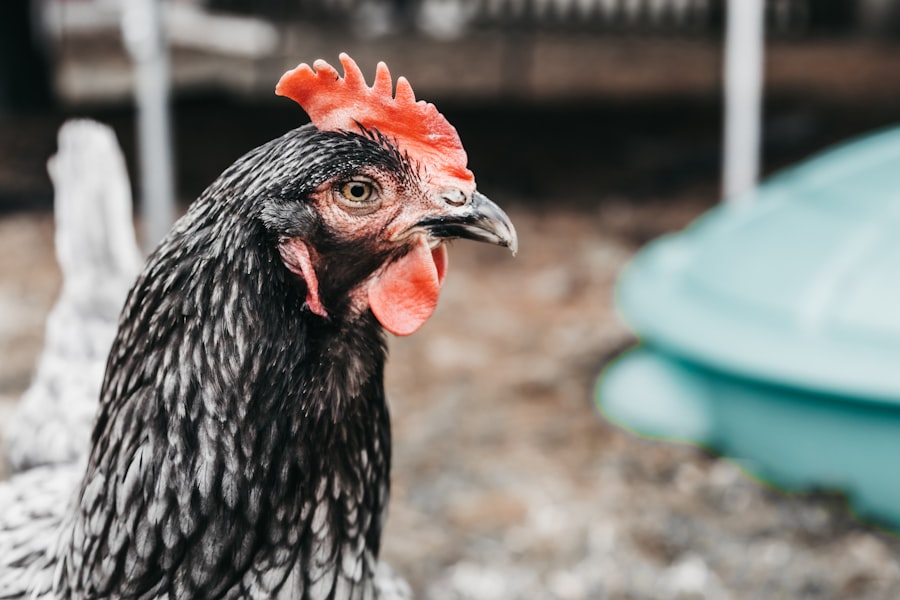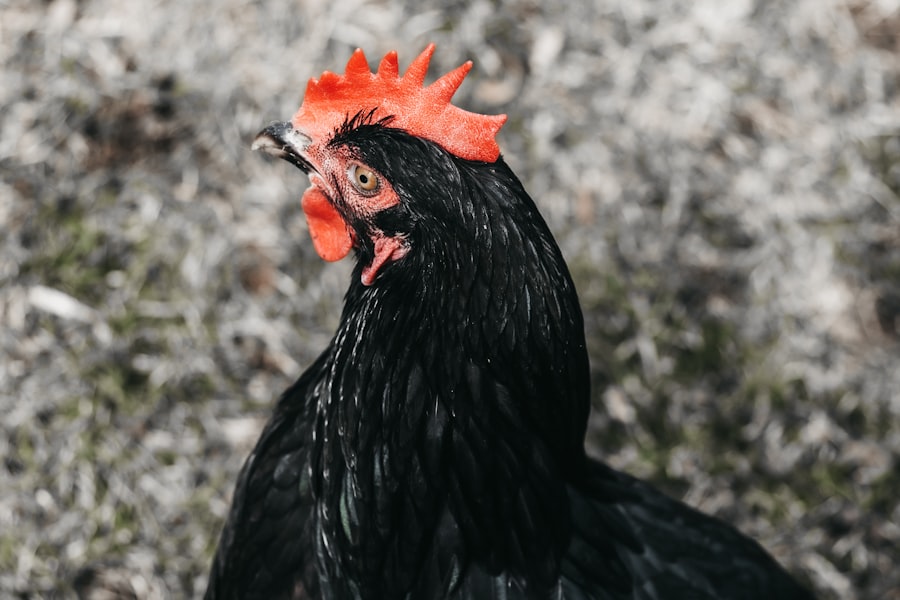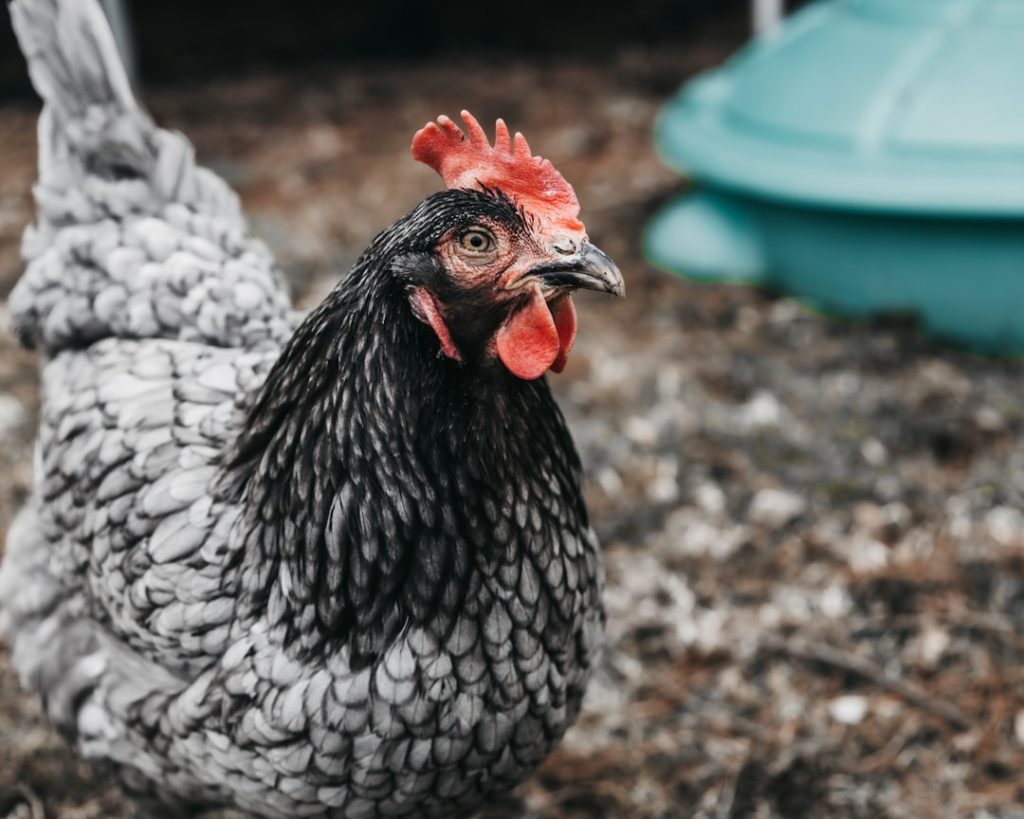Keeping chickens has gained popularity in recent years due to increased interest in sustainable living and self-sufficiency. Chickens provide fresh eggs, natural pest control, and fertilizer for gardens. They can be raised in both rural and urban settings, offering a rewarding experience for their owners.
Chickens are relatively low-maintenance animals, making them suitable for beginners. They require a secure coop, fresh water, food, and regular care to ensure their health and well-being. With proper knowledge and preparation, individuals of varying experience levels can successfully raise chickens.
This guide will cover essential aspects of keeping chickens, including breed selection, housing, nutrition, and care. By the end of this article, readers will have the necessary information to start their own backyard flock and enjoy the benefits of chicken keeping.
Table of Contents
- 1 Choosing the Right Breed for Your Location
- 2 Housing and Coop Design
- 3 Feeding and Nutrition
- 4 Health and Care
- 5 Legal Requirements and Regulations
- 6 Tips for Raising Happy and Healthy Chickens
- 7 FAQs
- 7.1 What is the purpose of the article “Keeping Chickens: An Australian Guide Review”?
- 7.2 What information does the article cover?
- 7.3 Who is the target audience for the article?
- 7.4 What are some key takeaways from the article?
- 7.5 Where can the book “Keeping Chickens: An Australian Guide” be purchased?
Key Takeaways
- Keeping chickens can be a rewarding and enjoyable experience for both urban and rural dwellers.
- When choosing a breed, consider factors such as climate, space, and egg production to ensure the best fit for your location.
- The design of the coop should prioritize safety, ventilation, and protection from predators.
- A balanced diet with access to fresh water is essential for the overall health and egg production of chickens.
- Regular health checks, proper hygiene, and predator-proofing are crucial for the well-being of your flock.
Choosing the Right Breed for Your Location
Climate Considerations
If you live in a cold climate, it’s essential to choose a breed that can withstand harsh winter conditions. Some popular cold-hardy breeds include the Plymouth Rock, Orpington, and Wyandotte.
Space and Urban Considerations
In urban settings with limited space, smaller breeds like bantams or ornamental chickens are ideal. These breeds require less space and can thrive in smaller coops or backyards with secure runs.
Purpose and Breed Selection
Depending on your primary goal, there are various breeds to consider. For high-yield egg production, breeds like the Leghorn, Rhode Island Red, or Sussex are excellent choices. If you’re interested in raising chickens for meat, breeds like the Cornish Cross or Freedom Ranger are known for their fast growth and high-quality meat. By carefully considering your specific needs and circumstances, you can select the perfect breed of chicken to thrive in your location.
Housing and Coop Design

Proper housing is essential for keeping chickens safe, healthy, and productive. A well-designed coop provides protection from predators, shelter from the elements, and a comfortable environment for laying eggs and roosting at night. When planning your coop design, it’s important to consider the size of your flock, the climate in your area, and any local regulations or restrictions on coop construction.
The size of your coop will depend on the number of chickens you plan to keep. As a general rule of thumb, each chicken should have at least 2-3 square feet of indoor space and 8-10 square feet of outdoor space in a run. This allows them to move around freely and engage in natural behaviors like scratching and dust bathing.
The coop should also have adequate ventilation to prevent moisture buildup and ensure good air quality. Additionally, nesting boxes should be provided for hens to lay their eggs in a clean and comfortable environment. In terms of materials, coops can be constructed from wood, metal, or plastic, depending on personal preference and budget.
It’s important to use sturdy materials that can withstand the elements and provide security against predators. The coop should also have a secure door and latches to prevent unauthorized entry by predators or pests. By carefully planning and designing your chicken coop, you can create a safe and comfortable home for your flock.
Feeding and Nutrition
Proper nutrition is essential for keeping chickens healthy and productive. A well-balanced diet provides the essential nutrients needed for egg production, growth, and overall well-being. Chickens are omnivores and require a combination of grains, protein, vitamins, and minerals to thrive.
Commercial chicken feed is readily available and comes in different formulations depending on the age and purpose of the chickens. For laying hens, a layer feed with added calcium is recommended to support strong eggshells and overall reproductive health. Chick starter feed is designed for young chicks and provides the high protein levels needed for growth and development.
In addition to commercial feed, chickens can also benefit from kitchen scraps, garden greens, and occasional treats like mealworms or scratch grains. It’s important to provide access to fresh water at all times to prevent dehydration and ensure proper digestion. In addition to feed, chickens also require access to grit for digestion and calcium supplements for laying hens.
Grit helps chickens grind their food in their gizzards, while calcium supplements like crushed oyster shells provide the necessary nutrients for strong eggshells. By providing a well-balanced diet that meets their nutritional needs, you can ensure that your chickens stay healthy and productive.
Health and Care
Maintaining the health and well-being of your flock is essential for successful chicken keeping. Regular care and observation can help prevent common health issues and ensure that any problems are addressed promptly. It’s important to monitor your chickens daily for signs of illness or injury, as early detection can make a significant difference in treatment outcomes.
Common health issues in chickens include respiratory infections, parasites (such as mites or worms), egg binding in hens, and injuries from predators or accidents. Regular cleaning of the coop and nesting boxes can help prevent parasite infestations, while providing a clean environment for your chickens to live in. Additionally, regular deworming and parasite control measures can help keep your flock healthy and free from harmful pests.
In terms of general care, chickens require regular access to fresh water, clean bedding in the coop, and protection from extreme weather conditions. During hot weather, providing shade and adequate ventilation is essential to prevent heat stress in chickens. In cold weather, adding extra bedding and insulation can help keep chickens warm and comfortable.
By providing attentive care and addressing any health concerns promptly, you can ensure that your flock remains happy and healthy.
Legal Requirements and Regulations

Local Ordinances and Zoning Laws
Local ordinances may dictate the number of chickens allowed per property, setback requirements for coops from property lines or neighboring homes, and specific guidelines for coop construction and maintenance. Some areas may also have restrictions on roosters due to noise concerns, so it’s crucial to check local regulations before acquiring any male chickens.
Homeowners’ Associations and Rental Agreements
Additionally, some homeowners’ associations or rental agreements may have specific rules regarding keeping poultry on the property. By familiarizing yourself with any legal requirements or regulations that apply to keeping chickens in your area, you can avoid potential conflicts and ensure that your flock is in compliance with local laws.
Permits, Licenses, and Inspections
In some cases, obtaining a permit or license may be required to keep chickens on your property. This may involve an inspection of the coop and property to ensure that it meets local standards for animal welfare and public health. By following any legal requirements or regulations that apply to keeping chickens in your area, you can enjoy the many benefits of raising poultry without running into any legal issues.
Tips for Raising Happy and Healthy Chickens
Raising happy and healthy chickens involves more than just providing food and shelter. Chickens are social animals that thrive on interaction with their owners and other flock members. Spending time with your chickens, observing their behavior, and providing enrichment activities can help keep them mentally stimulated and content.
Providing opportunities for natural behaviors like scratching for insects or dust bathing can help keep chickens active and engaged. Additionally, offering perches or roosts at different heights in the coop allows chickens to exercise their natural instinct to roost at night. Access to a secure outdoor run or free-range time can also provide valuable exercise and mental stimulation for your flock.
Regularly checking for signs of stress or illness in your chickens can help prevent potential health issues from escalating. By observing their behavior, posture, appetite, and egg production, you can quickly identify any changes that may indicate a problem. Addressing any concerns promptly with appropriate care or veterinary attention can help keep your flock healthy and thriving.
In conclusion, keeping chickens can be a rewarding experience that provides fresh eggs, natural pest control, fertilizer for the garden, and endless entertainment. By choosing the right breed for your location, providing proper housing and nutrition, maintaining their health and well-being, following legal requirements and regulations, and implementing tips for raising happy and healthy chickens, you can enjoy all the benefits of keeping poultry in your backyard. With the right knowledge and preparation, anyone can successfully raise a flock of chickens and experience the joy of connecting with these fascinating creatures.
If you’re interested in keeping chickens in Australia, you may also want to check out this article on how to convert a shed into a chicken coop. This helpful guide from Poultry Wizard provides step-by-step instructions for transforming a shed into a suitable home for your feathered friends. Whether you’re a beginner or an experienced chicken keeper, this article offers valuable insights into creating a comfortable and functional space for your chickens. Check it out here!
FAQs
What is the purpose of the article “Keeping Chickens: An Australian Guide Review”?
The purpose of the article is to provide a review and overview of the book “Keeping Chickens: An Australian Guide” which is a comprehensive guide for raising chickens in Australia.
What information does the article cover?
The article covers a review of the book “Keeping Chickens: An Australian Guide” including its content, relevance to Australian chicken keepers, and its usefulness as a resource for beginners and experienced chicken owners.
Who is the target audience for the article?
The target audience for the article includes individuals interested in raising chickens in Australia, whether they are beginners or experienced chicken keepers looking for a comprehensive guide.
What are some key takeaways from the article?
Some key takeaways from the article include an overview of the book’s content, its practical advice for Australian chicken keepers, and its value as a resource for those looking to start or improve their chicken keeping practices.
Where can the book “Keeping Chickens: An Australian Guide” be purchased?
The book “Keeping Chickens: An Australian Guide” can be purchased from various bookstores, online retailers, and directly from the publisher.
Meet Walter, the feathered-friend fanatic of Florida! Nestled in the sunshine state, Walter struts through life with his feathered companions, clucking his way to happiness. With a coop that’s fancier than a five-star hotel, he’s the Don Juan of the chicken world. When he’s not teaching his hens to do the cha-cha, you’ll find him in a heated debate with his prized rooster, Sir Clucks-a-Lot. Walter’s poultry passion is no yolk; he’s the sunny-side-up guy you never knew you needed in your flock of friends!







